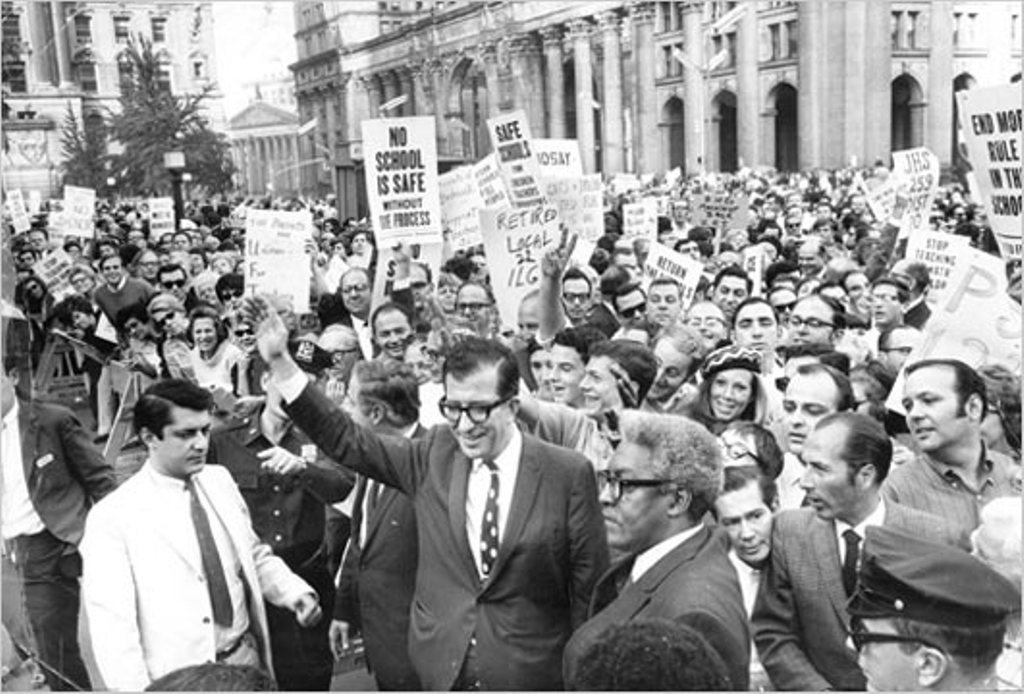It happens every year: summer comes to a close, signaled by The Jerry Lewis Telethon and a return to school.
The public school battles will surely continue, and between testing, charter schools, vouchers, small schools, and so many other issues, it’s sometimes easy to lose track of the fundamental reason why there are public schools.
So, for this last week of August, let’s consider what Albert Shanker thought about the core rationale for public schools. Shanker was the long-term head of the American Federation of Teachers and the United Federation of Teachers. He was immortalized by Woody Allen in the movie Sleeper, where the lead character wakes up in the future to learn that civilization was
destroyed when “a man by the name of Albert Shanker got hold of a
nuclear warhead.” Shanker was many things, including the person who shut New York City down when he led a series of strikes in the 1960’s. Shanker is the father of the charter school movement, although his vision for charter schools was vastly different than what is behind the charter movement today. Shanker is also considered the father of the standards-based movement. There’s a terrific biography out on Shanker–it’s in my books list to the right.
So, who could possibly be a better choice when looking for a signature quote as we careen towards the first day of school and the Labor Day weekend, but one of the greatest labor leaders ever, who was also one of the central figures in education during the second half of the 20th century. Here’s Albert Shanker on why we have public schools:
“To teach children what it means to be an American.”





An interesting quote, and there’s a lot of truth to it–but at the same time it smacks (at least when presented w/out context) of doctrinaire “Americanization” efforts of the progressive era. Which, in many ways, Deweyan pedagogy sought to curb.
i like this blog, by the way.
It’s true, there’s not much context to this. Shanker viewed public schools as the primary vehicle for the “melting pot,” and fought hard to ensure that public schools would be diverse, along a number of lines, not the least of which was along class and economic levels. When there was a movement to create schools for African American students, taught by African American teachers, Shanker fought it, for he believed such schools would no longer serve the melting pot.